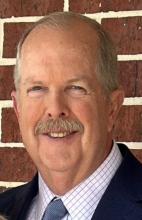
The combination of rigorous academic training, hands-on experience, ethical discussions and personal reflection created a holistic learning environment that prepared me well for a second career dedicated to supporting individuals during some of life’s most challenging moments.
After retiring at the age of 62 from a full career in education, I began working part-time for Bates, Cooper, Sloan Funeral Home. The more time I spent there, the more I recognized the profound impact that compassionate care can have during one of life’s most challenging moments. Inspired by the support I received from the funeral home staff and from my past experience of losing close family members, I realized that I wanted to help others navigate their grief. With the endorsement from my family and the Funeral Directors at Bates, Cooper, Sloan, I enrolled in the Funeral Service Program at Northeast Texas Community College.
Participating in the Funeral Service Program offered a unique opportunity to engage with the intricacies of end-of-life care, grief management, and the cultural significance of funerals. I gained invaluable insight into the emotional and logistical aspects of funeral services while developing a profound respect for the profession.
The program was rigorous, filled with both academic coursework and hands-on training. I was immersed in subjects such as anatomy, embalming techniques, and legal regulations governing funeral practices. This knowledge was crucial in understanding not only how to prepare a body for burial or cremation, but also how to navigate the complex legal landscape surrounding death. Additionally, courses on grief counseling provided me with tools to support families during their most vulnerable moments.
A significant part of this experience involved learning about grief and its psychological impacts on individuals and families. The program emphasized empathy and active listening skills necessary for providing support during times of loss. We engaged in role-play exercises that simulate interactions with grieving families, which helped me develop a compassionate approach when addressing their needs. Understanding different cultural perspectives on death further enriched my ability to connect with diverse communities.
Ethics played a pivotal role throughout my training. Discussions around ethical dilemmas faced by funeral directors were frequent, emphasizing integrity, transparency, and respect for deceased individuals and their families. Understanding these ethical principles prepared me for real-world challenges where difficult decisions must be made while maintaining professionalism.
I would be remiss if I did not mention the instructors in this program. The instructors in this program were incredibly helpful, providing not only expert knowledge in their respective fields but also fostering a supportive and engaging learning environment. They were always approachable, offering guidance and encouragement that inspired students to deepen their understanding of the complex subjects required. Their dedication to student success was evident through their willingness to provide additional resources and engage in meaningful discussions that extended beyond the classroom. This commitment to student development made a significant impact on my educational experience, enhancing both my academic achievements and personal growth.
Completing the degree in the Funeral Service Program was enriching both professionally and personally. The combination of rigorous academic training, hands-on experience, ethical discussions and personal reflection created a holistic learning environment that prepared me well for a second career dedicated to supporting individuals during some of life’s most challenging moments. I emerged from this program not only equipped with practical skills but also with a sense of purpose, ready to make a meaningful contribution within this vital field.
Word Count: 538
